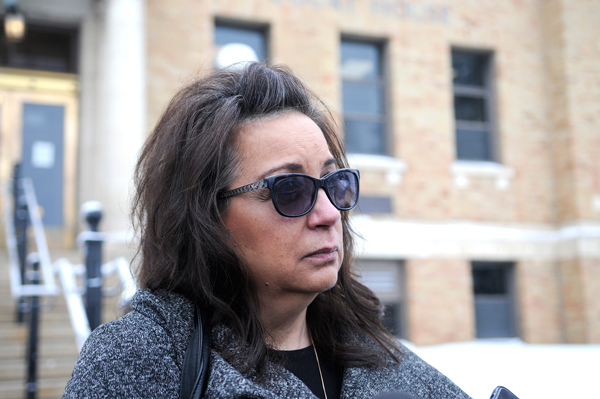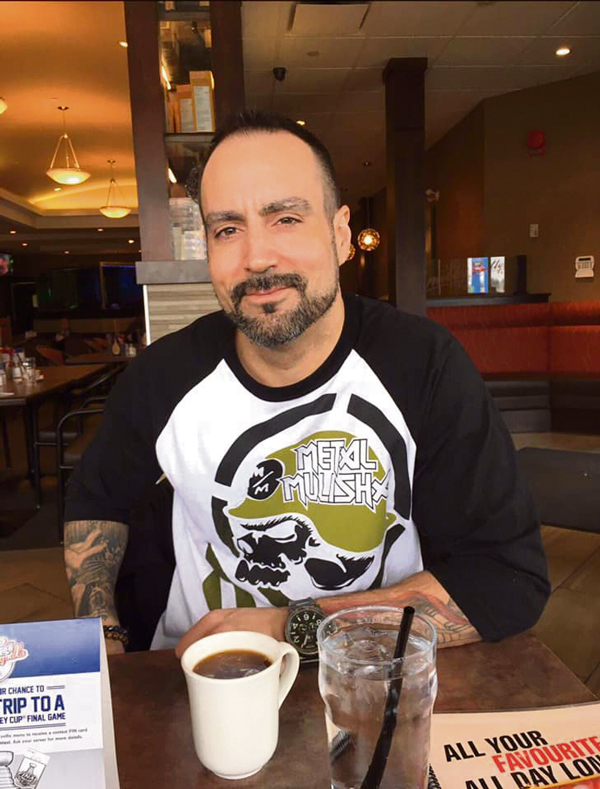
“The people that make the rules in the prison system knew exactly…what (Vandewater) was capable of.”
Christopher Van Camp was let out on parole from Saskatchewan Penitentiary on Apr. 24, 2017—his 37th birthday.
He wouldn’t live to see his 38th.
Just a month and a half later, on June 7, Van Camp died in a fatal fight with his cellmate Tyler Vandewater, according to his testimony.
Vandewater‘s second-degree murder trial came to a close on Wednesday. The verdict is due Mar. 5.
Desperate for answers, Van Camp’s mother Lauren Laithwaite flew from her Calgary home for the trial. She sat two rows back from Vandewater every day, tissues in hand to wipe away her tears.

Laithwaite said she holds Correctional Service Canada (CSC) “equally responsible” for her son’s death.
She’s sued CSC for negligence in Van Camp’s death. The CSC claims it was a result of his “high-risk” lifestyle and said in its defence that prisons are inherently dangerous places.
“It has been my opinion that Tyler is a very sick individual with his own problems that stem far reaching into his childhood,” Laithwaite told reporters outside of the Court of Queen’s Bench on Wednesday.
“Tyler did what a person like Tyler will do,” she added. “Tyler was their weapon.”
Vandewater, 31, has a history of violent offences. His court records show six assaults since 2008, including two aggravated assaults in December of 2019.
“The people that make the rules in the prison system knew exactly what they had, they knew what he was capable of,” said Laithwaite.
She said her son, on the other hand, was never violent. While on parole in Calgary, Van Camp broke his conditions and overdosed, putting him into a coma for five days.
Police issued an arrest warrant for Van Camp on June 1, 2017, according to an agreed statement of facts.
“He was arrested illegally, the law protected him from rearrest after his overdose,” said Laithwaite.
Laithwaite and her lawyer claim Van Camp was protected under the Good Samaritan Drug Overdose Act. According to the Government of Canada, the act “provides some legal protection for people who experience or witness an overdose and call 911 or their local emergency number for help.”
Her allegations in the lawsuit have not been proven in court.

In Vandewater’s trial, court heard the pair were cellmates several months before Van Camp was let out of Sask. Pen. When he was transferred back on June 6, 2017, Vandewater agreed to share a cell with him again.
Several witnesses, including Vandewater, commented on Van Camp’s weight loss.
“Just understanding how sick my son was when he was brought back into prison—clearly everybody knew he had lost a lot of weight. He shouldn’t have been put in there,” said Laithwaite.
Van Camp was previously housed in minimum and medium-security units, she said.
The easy access to drugs in prison allowed him to continue feeding his addiction, said Laithwaite, so he was moved into maximum-security because “They can’t keep the drugs out.”
She emphasized Sask. Pen is also overcrowded. On Jan. 27, court heard there were nearly 90 inmates in Van Camp’s unit when he died.
Additionally, Vandewater testified that almost every inmate carries a homemade weapon. It’s easy to do, he said, by simply sharpening any kind of metal and creating a handle with a ripped T-shirt or shoelaces.
“The Correctional Service of Canada (CSC) takes the death of an inmate very seriously,” said the CSC in an emailed statement.
“The loss of life is always a tragedy. Following Mr. Van Camp’s death, CSC convened an internal Board of Investigation (BOI). BOIs allow the CSC to examine circumstances of incidents and to present findings and recommendations that may prevent similar occurrences in the future. Any actions that address any areas of concern are considered and implemented accordingly.”
CSC said it couldn’t provide further details because the matter is before the courts.
In her son’s memory, Laithwaite started an advocacy group called CV Angels. The charity consists of about 50 volunteers who bring food to people at a Calgary rehab and drop-in centre once a month.
“We help people who are suffering from addiction,” she said. “I see my son in all that.”

Laithwaite said it’s been hard to face the man who killed her son, but what exactly happened doesn’t matter—it doesn’t change the fact that her son is deceased.
“I’ve been coping with this for two and a half years and I’m going to cope with it until I pass on,” she said.
“Now, I’m going to fight for the rights of prisoners.”
— with files from Peter Lozinski

